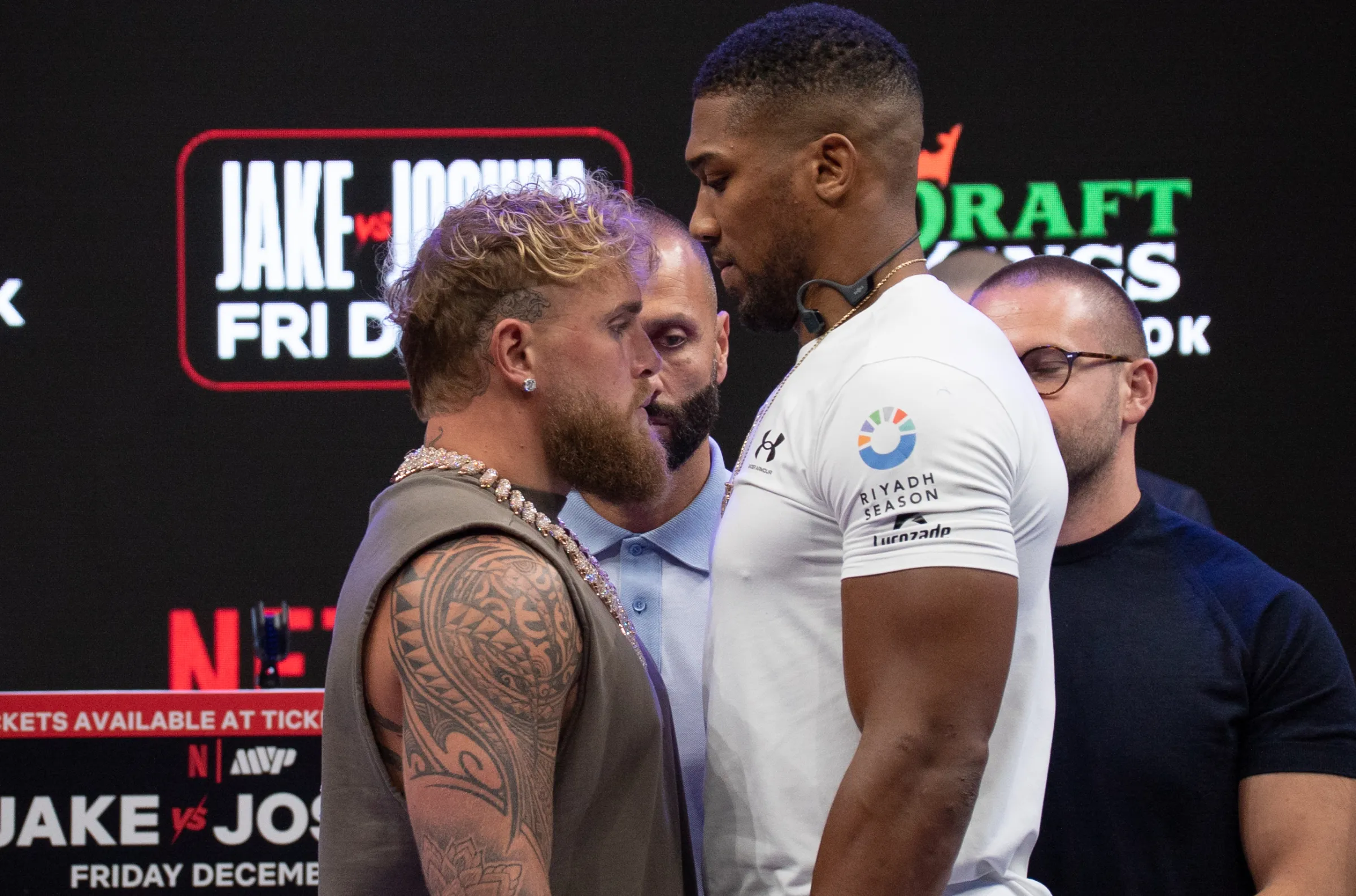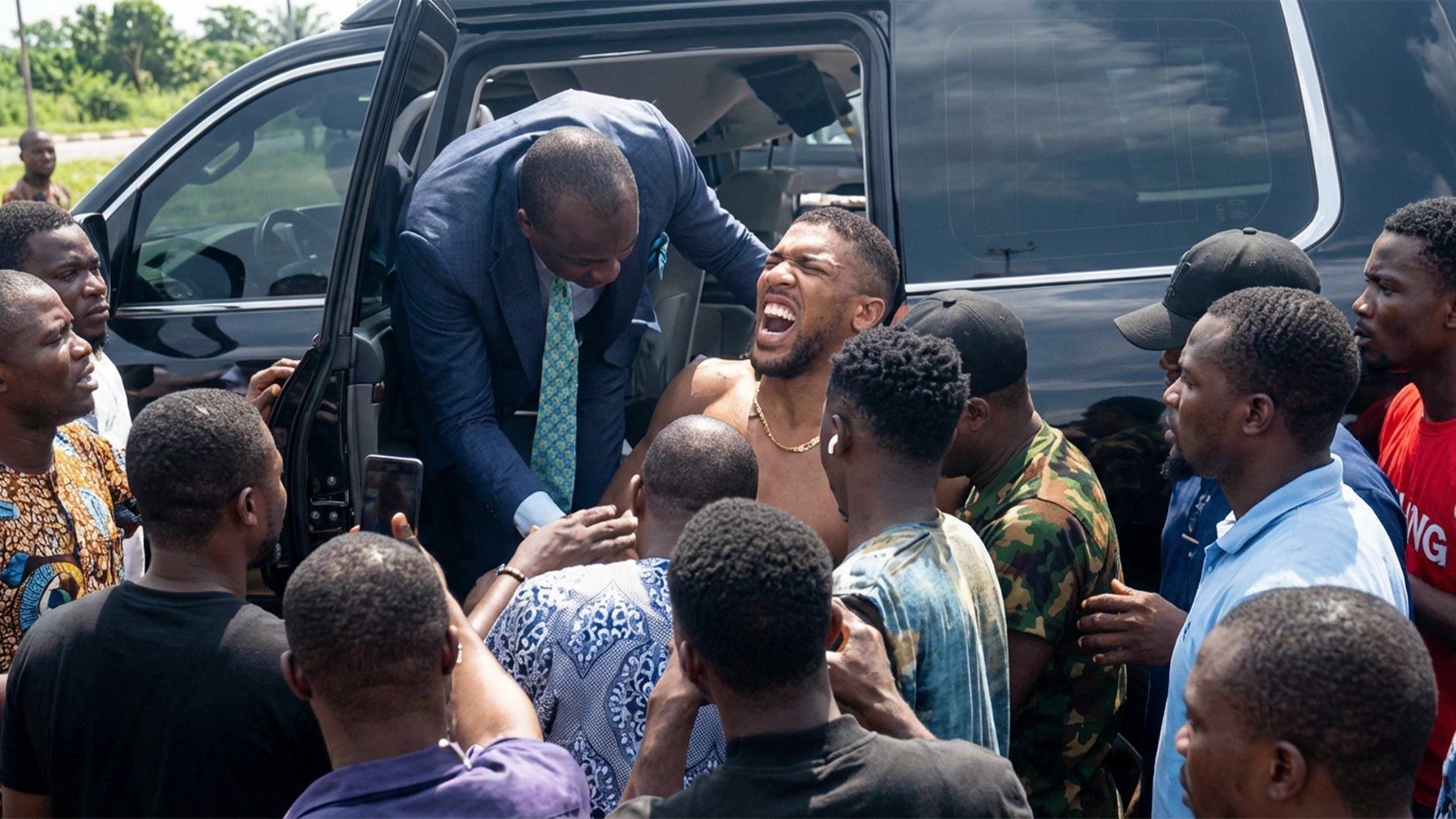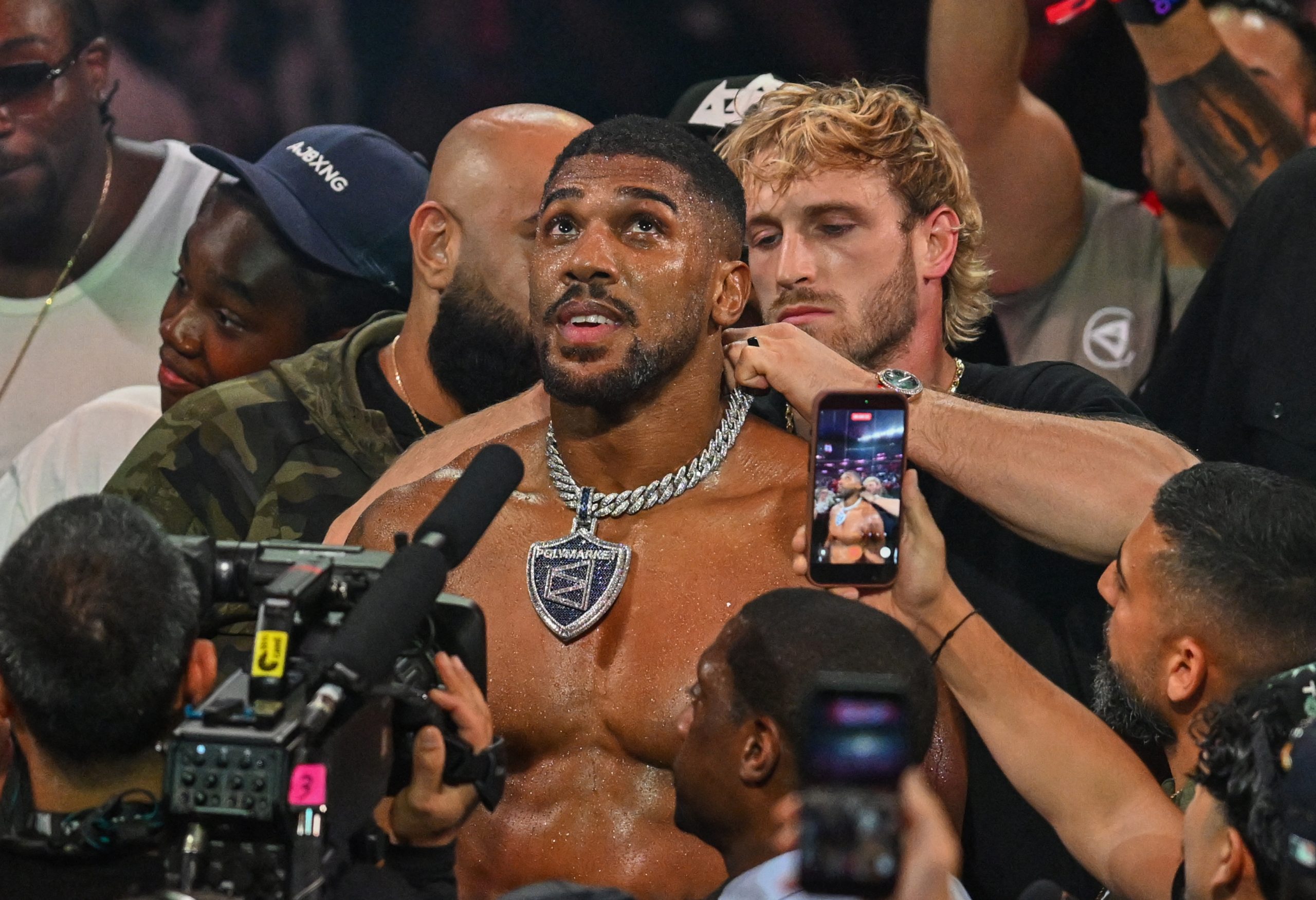
Joshua’s story is one of the triumphs of hard work, perseverance and humility over adversity and pessimism.
The British boxer, who does not hide the unadulterated Nigerian blood in him, has gone through so many hard times in his 28-year history.
Yet, at every turn, he has risen from the ashes of seeming defeat to rule his world. That he did once again on December 7 at the ‘Clash on the Dunes’ in Diriyah, Saudi Arabia where he caused legendary Fela’s evergreen tune, ‘Water no get enemy’ to welcome him to the ring.
When Joshua was knocked down four times and humiliated by his Mexican opponent back in June, many boxing pundits announced the unravelling of the myth surrounding the British-Nigerian strongman, with some predicting that he would never get anywhere close to any of the four world heavyweight titles.
Joshua was painted as the overhyped sissy, created by ‘a success-starved’ British press. He was said to be a local champion, who crumbled in his first adventure outside the British peninsular.
But against many predictions, Joshua put on a boxing master class to beat Andy Ruiz Jr. in the rematch. He reclaimed his heavyweight world titles with a wide points victory against the 20th 3lbs Mexican.
Joshua’s loss in June to Ruiz is considered as one of the biggest upsets in boxing history. After the fight, Joshua’s father, Robert was enraged and demanded an explanation from his trainer, Robert McCracken, on what happened to his son, who seemed lost for the major part of the fight. He wanted his son’s coaching team changed but as soon as the dust settled, Joshua convinced his dad that his team was perfect and he would be better prepared for the rematch.
While preparing for the second fight, Joshua came back to Nigeria where he did some charity work and reconnected with his roots. He went about his training with professionalism, paying attention to details and devising a system that would neutralize Ruiz’s fast hands.
Joshua also had many of his former adversaries visiting his camp, especially Wladimir Klitschko, who he knocked out in their fight. Klitschko and others came to give him tips on how to confront Ruiz while he also had sparring partners who were ready to help him get to top shape by presenting good performances throughout the training. They all agreed that he had to stay away from Ruiz’s fast fist, which floored him in the first fight. After the fight, Joshua told Ruiz to “never give up,” adding, “You’re a great man first of all. You’re a great champion as well. I told him to never give up and keep chasing your dream, boxing is tough.
“He’s created his own history, his own legacy. I created mine and I’m glad we could both play a part in each other’s legacies. I gave him a pat on the back and said I’m sure we’ll see you again.”
An exited Hearn said after the win that Joshua boxed in a way many didn’t think he could, adding: “The ‘new’ Joshua is lighter, silkier and perhaps even hungrier. It was a way of boxing that people didn’t believe he could do.”
McCracken, who was heavily criticised after the defeat in June, said: “I think he was where I wanted him to be for this fight. He has listened in camp, worked really hard, and I thought he boxed very well against a dangerous fighter.
“Andy Ruiz is a real danger and he is very quick and heavy-handed. There were a couple of times Josh went into mid-range and came unstuck but he settled back down in the corner and got back on it. His weight was great and his jab was tremendous.”
Many analysts described Joshua’s victory as an amazing display of style as he went 12 rounds unscathed against a man, who is famed for his fast hands and powerful left. Describing Joshua as another study in hard work and perseverance, veteran Irish Coach, Billy Walsh said there are times when even the best coaches don’t see what’s coming down the tracks.
“AJ was taken from basketball when he was 18. I remember Cathal McMonagle sparring him in 2011 and I said to Hussey at the time he was a novice,” said Walsh, the current USA boxing chief and 2016 AIBA World Coach of the Year.
“Hussey rang me after London (2012 Olympics) and said, “remember that novice you were on about… he’s just won prior to the rematch in Saudi Arabia.” Joshua’s followers feared that he could lack the mental fortitude to fight his demons and go for a win. But he dismissed such fears with his quick jabs, timely hooks, and calculated movements, all delivered in style.
After beating Ruiz Jr. in Saudi Arabia, Joshua joined a unique class of legendary fighters like Muhammad Ali, Lennox Lewis, Evander Holyfield, Floyd Patterson and Mike Tyson as men, who reclaimed the world heavyweight title. He also showed his true identity in Saudi Arabia.
Joshua’s close associates said after the bout that they were not surprised that he chose to enter the ring in the most important day of his career with Fela Ransome-Kuti’s ‘Water no get enemy’ blaring from the speakers. The song reminded every discerning person of Joshua’s links with his ancestral home. Nigeria. Joshua’s family hails from Sagamu in Ogun state. His father, Jonathan, was born to a Nigerian father from Sagamu by an Irish mother.
Born in 1989 in Watford, Hertfordshire, the boxer spent some of his early years in Nigeria as a boarding school student at Mayflower School, Ikenne, founded by the late Dr.Tai Solaarin. Ikene is the hometown of the late Chief Obafemi Awolowo.
Tracing Joshua’s ancestry to a lineage of warriors, the boxer’s uncle, Adedamola Joshua, in a recent interview with The Guardian explained, “The family is a royal family, and my father is the great-grandfather of Anthony Joshua. Olasheni Joshua is the direct son of Amoba Adebambo Joshua, who gave birth to Jonathan, the father of Anthony.”
According to Adedamola Joshua, fighting has been in the Joshua family lineage long before Anthony was born.
“The grandfather was a great boxer. Even the sister to the father, Adewunmi Joshua, a lady, used to beat men in this town. She was very tough,” Adedamola Joshua added.
That explains why at every fight, Joshua always embraces his Nigerian roots, and always makes it known the influence Nigerian culture has on him. He speaks a little Yoruba.
“My heart is with Nigeria, my heart is with Britain. I’m a Nigerian man by blood,” he said in an interview after one of his victories.
Joshua once said the experience he had at the boarding school in Mayflower, Ikenne taught him the discipline that has taken him far in his boxing career.
“The experience was good for me,” AJ said. “It was a change and I thought I was going to go for the full course: 5.30 a.m. in the morning, up fetch your water, but something like an iron in your water to warm it up. Your clothes had to be washed and ironed. It wasn’t an issue but was good discipline.”
“I only heard about him on the radio, but I have not seen him before. I don’t know anything about him and I can’t say I met him in this school,” the Vice Principal Academics of the school, B.O Lawal said in a recent interview.
“He must have come a long time ago. For us to actually trace, he must be able to tell us the year, the student number and the name he was bearing then.”
Joshua might be a British citizen, but for the people of Sagamu, he is one of their own.
During Joshua’s visit to Nigeria in July 2019, he stopped by at Fela’s shrine in Lagos, where Femi Kuti showed him around. This victorious match reminded everyone of Fela’s undying legacy.
With his new-found form and fighting style, Joshua is already preparing for next year as he hopes to banish the memory of his only loss to Ruiz while hoping that he will remain in top shape for the mandatory challengers – Ukraine’s Oleksandr Usyk and Kubrat Pulev – and dominate the heavyweight class for some time to come despite Tyson Fury and Deontay Wilder also lurking in the corner.
So, for his love for Nigeria his roots, despite the British passport he is also currently holding at a time most young people are disgruntled and would like to say farewell to the country, AJ is this newspaper’s 2019 Hero, who would have been ‘Person of the Year’ but for Dr. Arikana Chihombori’s more significant pan-African credentials.
Okpara is The Guardian’s Sports Editor






